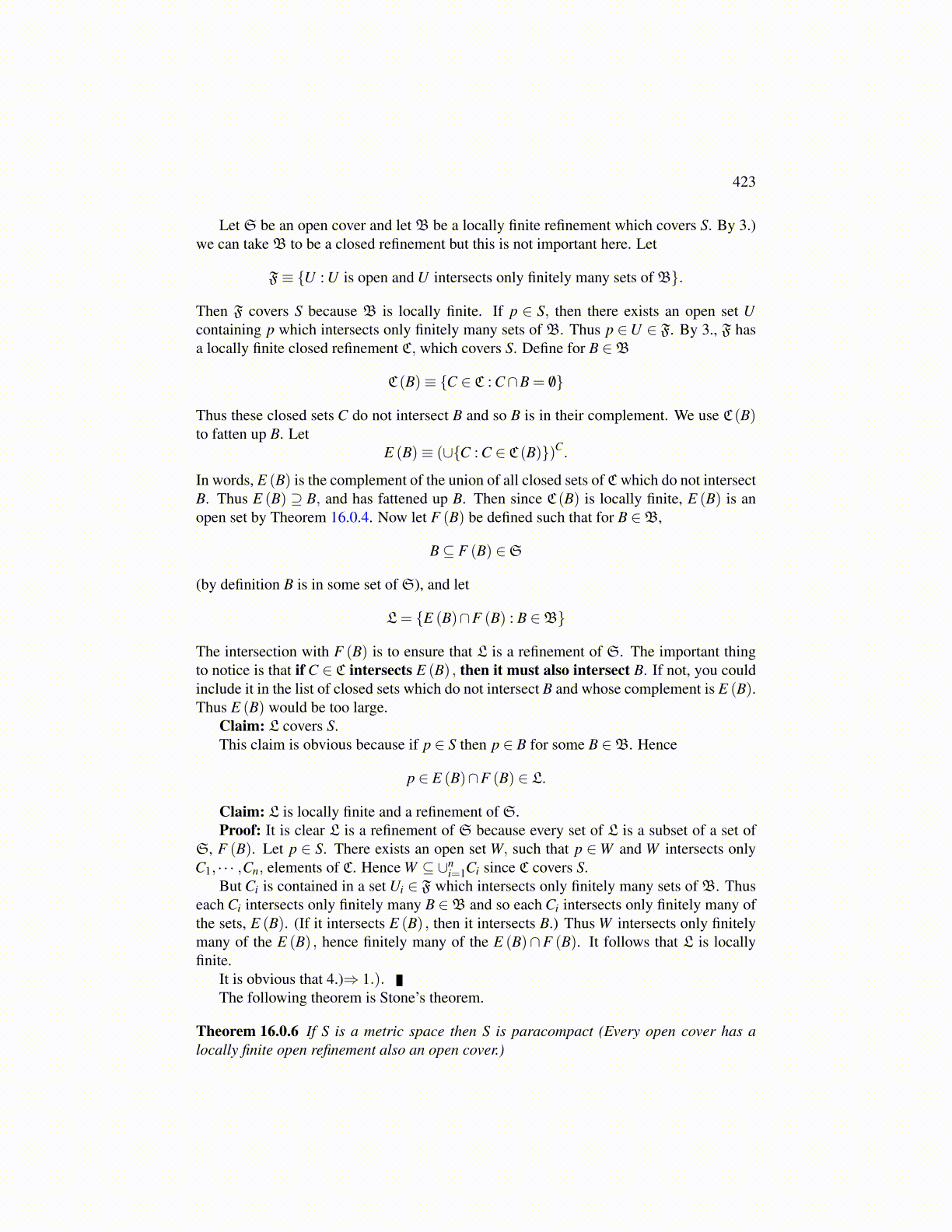
423
Let S be an open cover and let B be a locally finite refinement which covers S. By 3.)we can take B to be a closed refinement but this is not important here. Let
F≡ {U : U is open and U intersects only finitely many sets of B}.
Then F covers S because B is locally finite. If p ∈ S, then there exists an open set Ucontaining p which intersects only finitely many sets of B. Thus p ∈U ∈ F. By 3., F hasa locally finite closed refinement C, which covers S. Define for B ∈B
C(B)≡ {C ∈ C : C∩B = /0}
Thus these closed sets C do not intersect B and so B is in their complement. We use C(B)to fatten up B. Let
E (B)≡ (∪{C : C ∈ C(B)})C.
In words, E (B) is the complement of the union of all closed sets of C which do not intersectB. Thus E (B) ⊇ B, and has fattened up B. Then since C(B) is locally finite, E (B) is anopen set by Theorem 16.0.4. Now let F (B) be defined such that for B ∈B,
B⊆ F (B) ∈S
(by definition B is in some set of S), and let
L= {E (B)∩F (B) : B ∈B}
The intersection with F (B) is to ensure that L is a refinement of S. The important thingto notice is that if C ∈ C intersects E (B) , then it must also intersect B. If not, you couldinclude it in the list of closed sets which do not intersect B and whose complement is E (B).Thus E (B) would be too large.
Claim: L covers S.This claim is obvious because if p ∈ S then p ∈ B for some B ∈B. Hence
p ∈ E (B)∩F (B) ∈ L.
Claim: L is locally finite and a refinement of S.Proof: It is clear L is a refinement of S because every set of L is a subset of a set of
S, F (B). Let p ∈ S. There exists an open set W, such that p ∈W and W intersects onlyC1, · · · ,Cn, elements of C. Hence W ⊆ ∪n
i=1Ci since C covers S.But Ci is contained in a set Ui ∈ F which intersects only finitely many sets of B. Thus
each Ci intersects only finitely many B ∈B and so each Ci intersects only finitely many ofthe sets, E (B). (If it intersects E (B) , then it intersects B.) Thus W intersects only finitelymany of the E (B) , hence finitely many of the E (B)∩F (B). It follows that L is locallyfinite.
It is obvious that 4.)⇒ 1.).The following theorem is Stone’s theorem.
Theorem 16.0.6 If S is a metric space then S is paracompact (Every open cover has alocally finite open refinement also an open cover.)